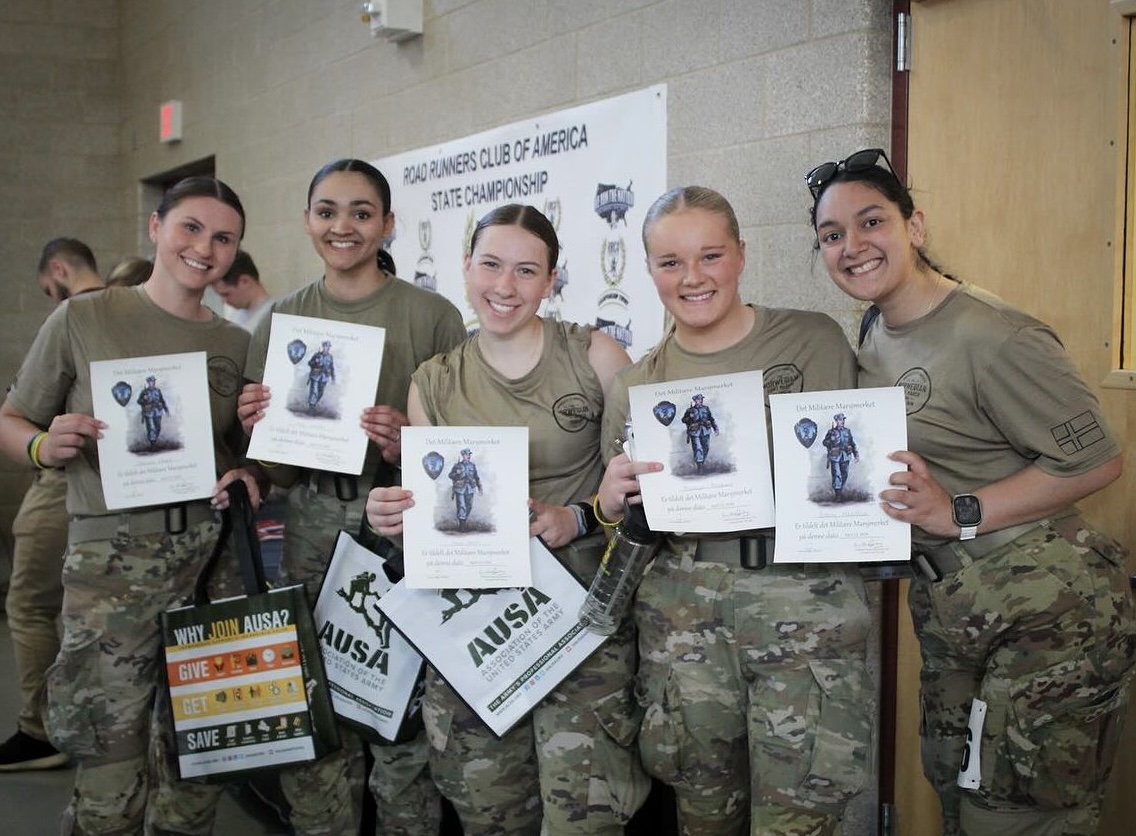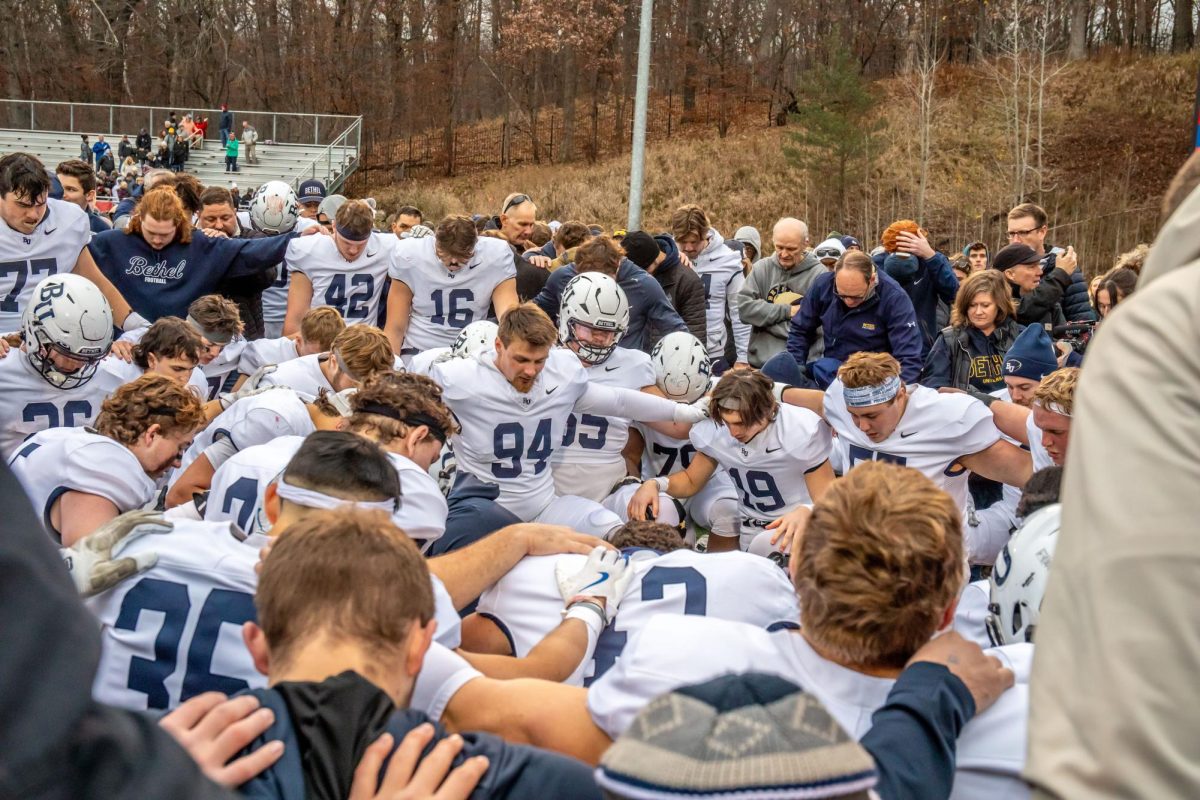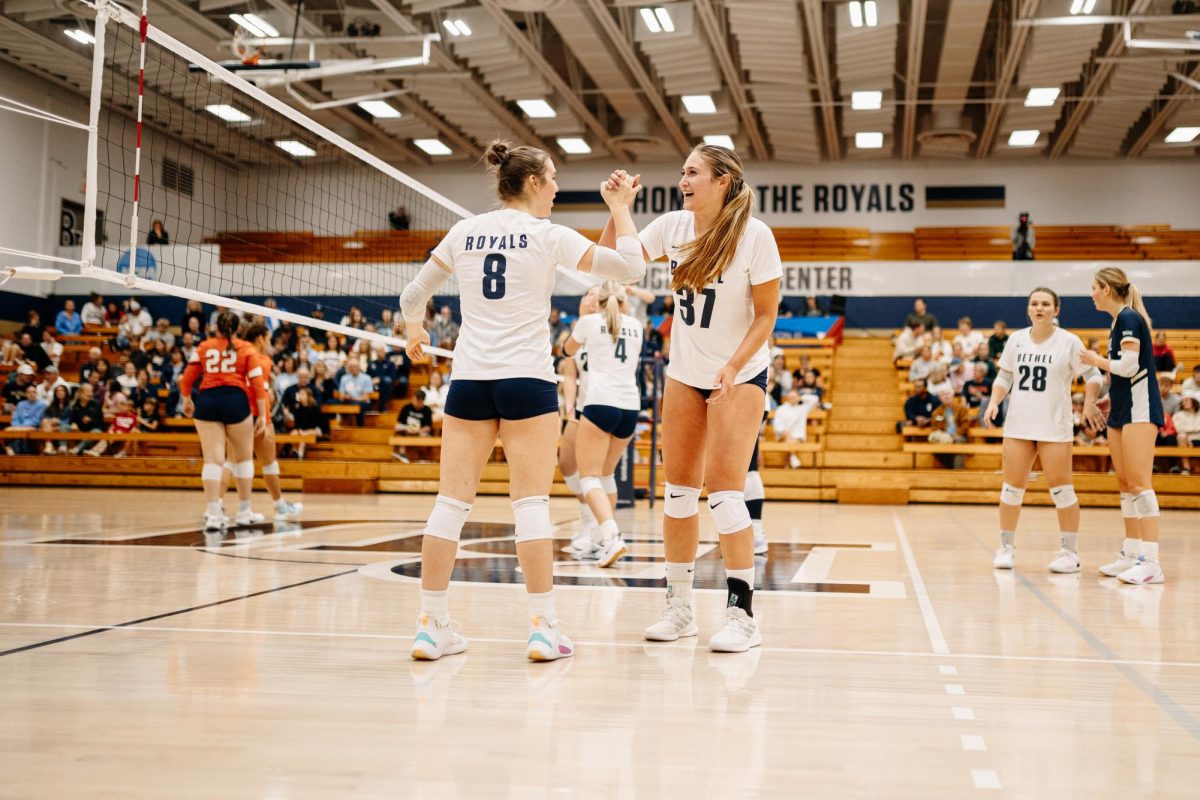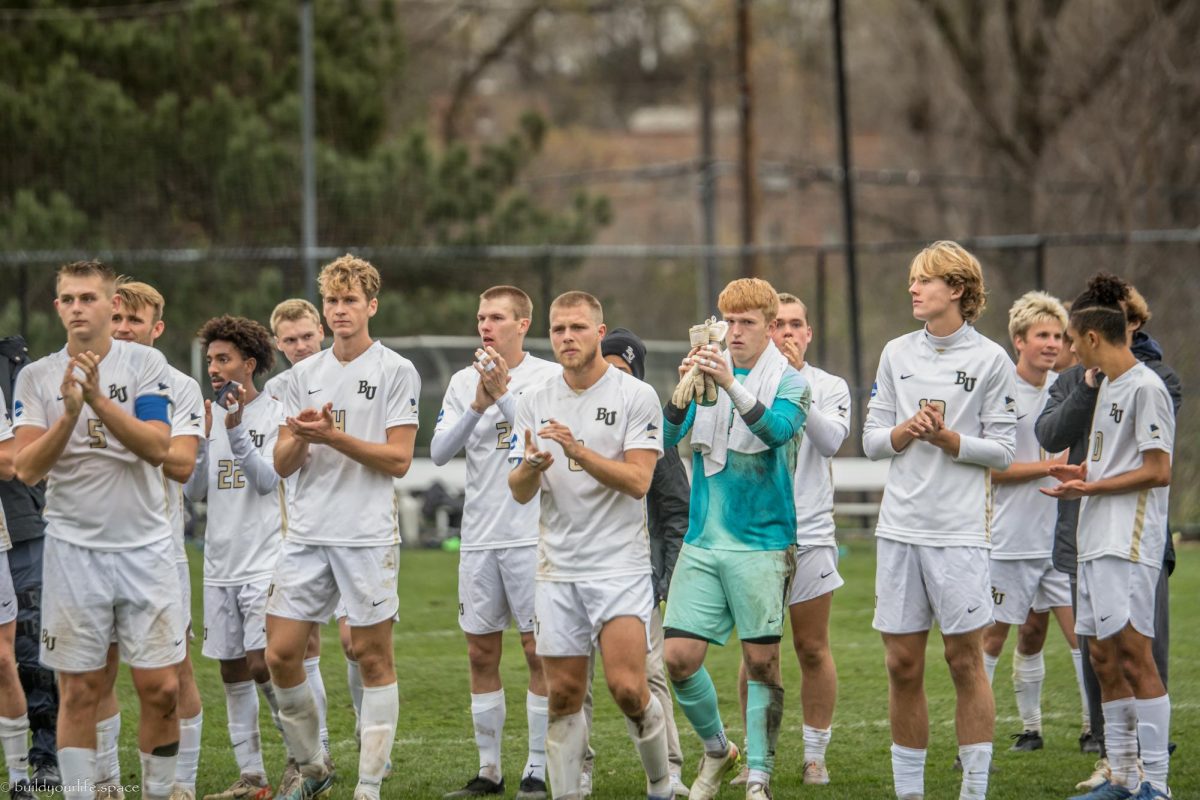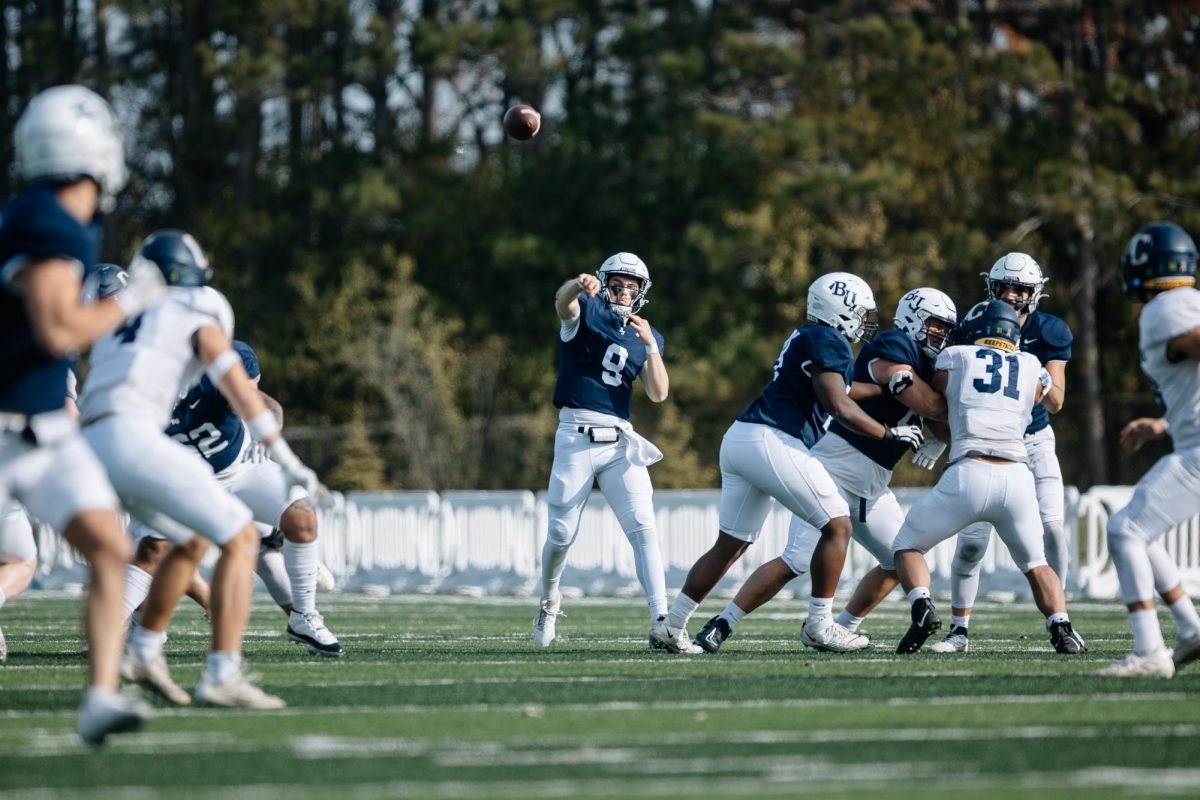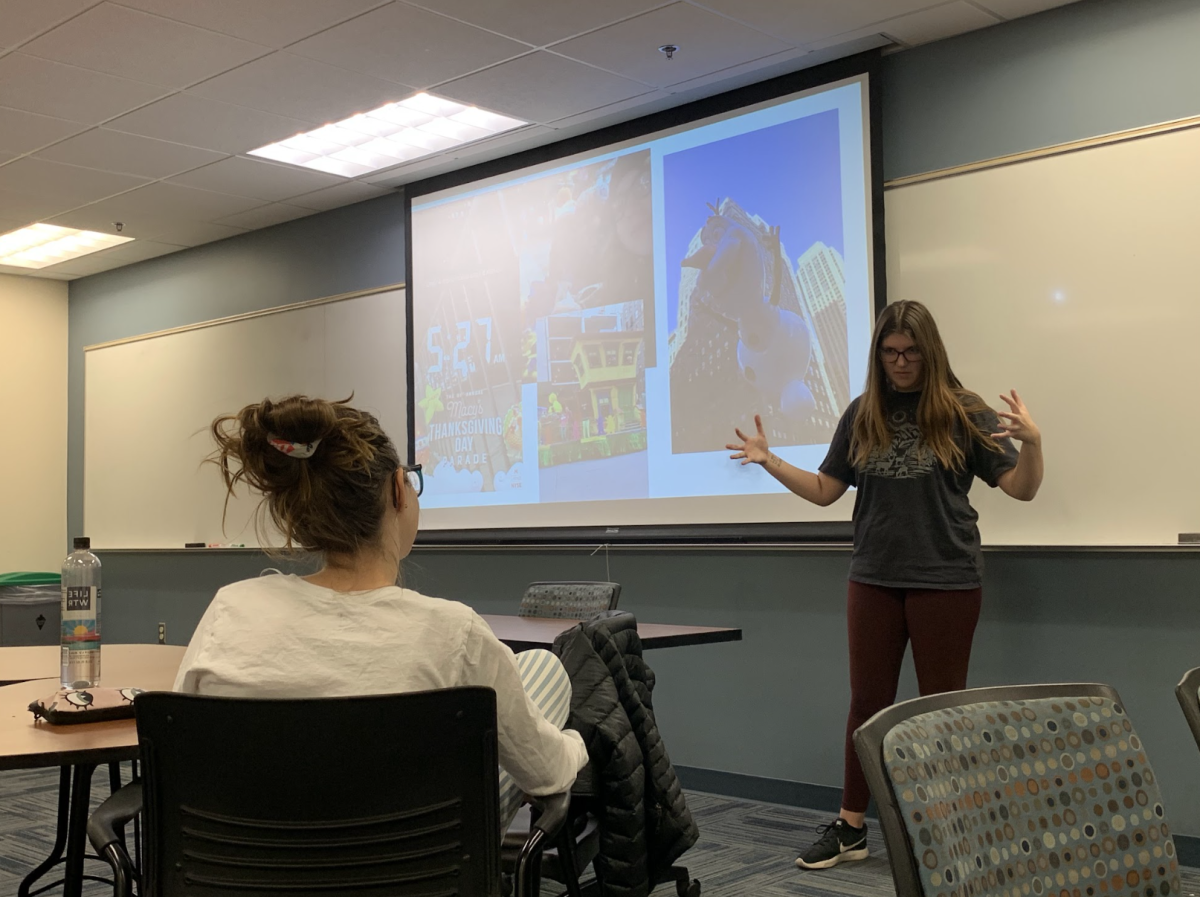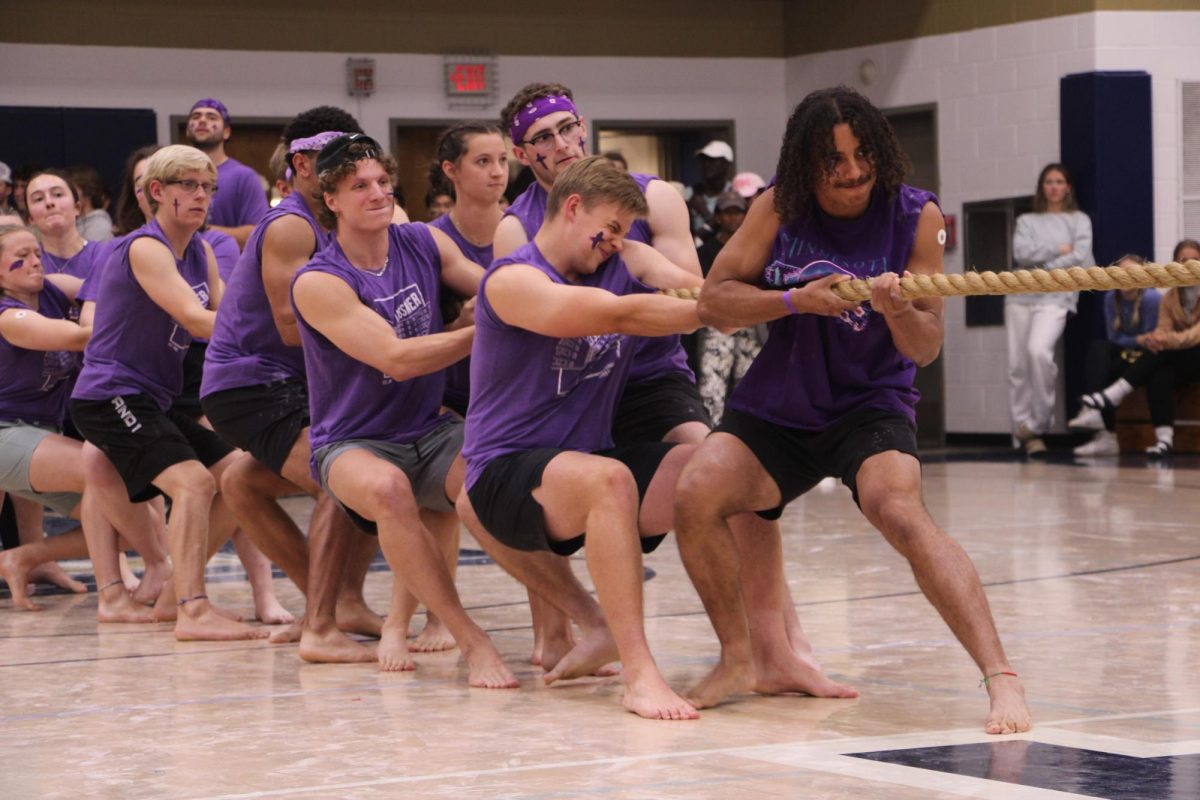Maya Weber sat with her feet pulled up in a spinning chair. She held a notebook and pen, ready for grading. As students gave their final presentations for American Sign Language 101, Weber watched intently. With their hands, they told stories of past trips, from going to Taylor Swift’s Eras Tour to seeing the Macy’s Thanksgiving Parade in New York. The room was silent as gestures told of rainbow bagels and sunny beaches.
After each presentation, Weber wrote down a few notes and congratulated the student for doing well. Before they left, she asked them about Christmas break and their other finals.
Weber started the year as a teaching assistant for Adjunct Instructor of ASL Becki Tate, a role the junior special education major has held since her freshman year. When Tate couldn’t be in classes for what Weber called “medical reasons”, Weber started taking on more responsibilities for the three ASL courses being offered during fall 2023. She continued to get paid the TA rate of $11.75 per hour, and worked upward of 12 hours a week — six hours of teaching and six hours of grading.
“I’ve had to learn how to do so many things.” Weber said. “There was a student who needed a test in the testing center and I didn’t know how to do that. So I’ve learned … how to make sure everyone’s accommodations are being met.”
As a TA, Weber held tutor sessions and weekly conversations in ASL while building connections with students seeking help with class work. Starting Nov. 9, Weber was asked to take on more.
“They weren’t sure if they would be able to find anyone for the last five weeks or anyone qualified for it,” Weber said. “But they went through a dean to get it worked out … They offered [me more hours,] and I was willing. But it also felt like it was the only option.”
Soon Weber was teaching classes, grading assignments, keeping track of student participation and making sure students met their S-tag language requirements.
While taking two classes, Weber was able to balance most of her work with helping in ASL. But her Tuesdays and Thursdays became consumed by new ASL responsibilities.
According to Department Chair for Languages and Cultures and Dean of Academic Programs Barrett Fisher, he and Tate agreed that Weber was more than capable of expanding her responsibilities.
Although Weber said that Tate left for medical reasons and she felt like she had taken over the class, Fisher said Tate wasn’t officially on medical leave and remained engaged in the class.
“What Maya was really doing was kind of supporting the students as a tutor,” Fisher said, “while Professor Tate was continuing to do the main instruction. She was responding to emails, she’s grading final projects, all that kind of stuff.”
According to Fisher, resources and assignments were already set up for students on Moodle and Tate felt as if she could do the work she needed to do at home.
“Tate has been grading a few things, like the final S-tag paper,” Weber said. “But other than that, … it’s mostly been me.”
Elementary education major Anna McNeill was one of Tate’s and Weber’s students in ASL 101. She remembers walking into class one day and finding Weber on top of a table up front, sitting criss-cross applesauce.
“I know she’s a special ed major and have taken some teaching classes with her,” McNeill said. “So, it was cool to see God’s gifts given to her flourish through her teaching our class.”
ASL is a language McNeill has always enjoyed watching and was eager to learn. As classes continued in-person with Weber, she was grateful. McNeill has always been a visual learner and prefers hands-on activities.
“I felt like Maya was the professor at that point,” McNeill said. “But we also got little messages from Tate telling us how she was doing and other things, but mostly everything was done through Maya – communication, our assignments … she was there for our finals.”
ASL has always been a big part of Weber’s life. She studied it during her four years of high school and was excited to learn more coming into Bethel. With all of these great experiences, Weber believed that keeping the class in-person and having the conversations face to face was very important. This was a big factor in her decision to take on more than her TA responsibilities.
“I didn’t want the students to have a terrible experience or not enjoy the language,” Weber said. “I loved getting to connect with the students and it was fun getting to see more faces. It was nice to have that intentional time to meet up with everyone and ask them how I can support them.”
Despite not getting paid more, Weber is grateful she got the opportunity to be able to put her teaching skills to use. Being a special education major, this experience has shown her how a class really works.
Near the end of the semester, Weber received an email from Fisher asking for her to detail all the work she had done for compensation. She responded in detail. At the end of the semester, the Department of Languages and Cultures sent one more email to Weber, saying that Fisher had sent her a gift. In her P.O. box she found a mug and pen from the campus bookstore and a letter thanking Weber for her time.
Weber waited throughout January in case a paycheck would come through the mail but has still not received any compensation in getting paid outside of her hourly rate as a TA. Weber plans on reaching out again, asking for clarification for compensation.






